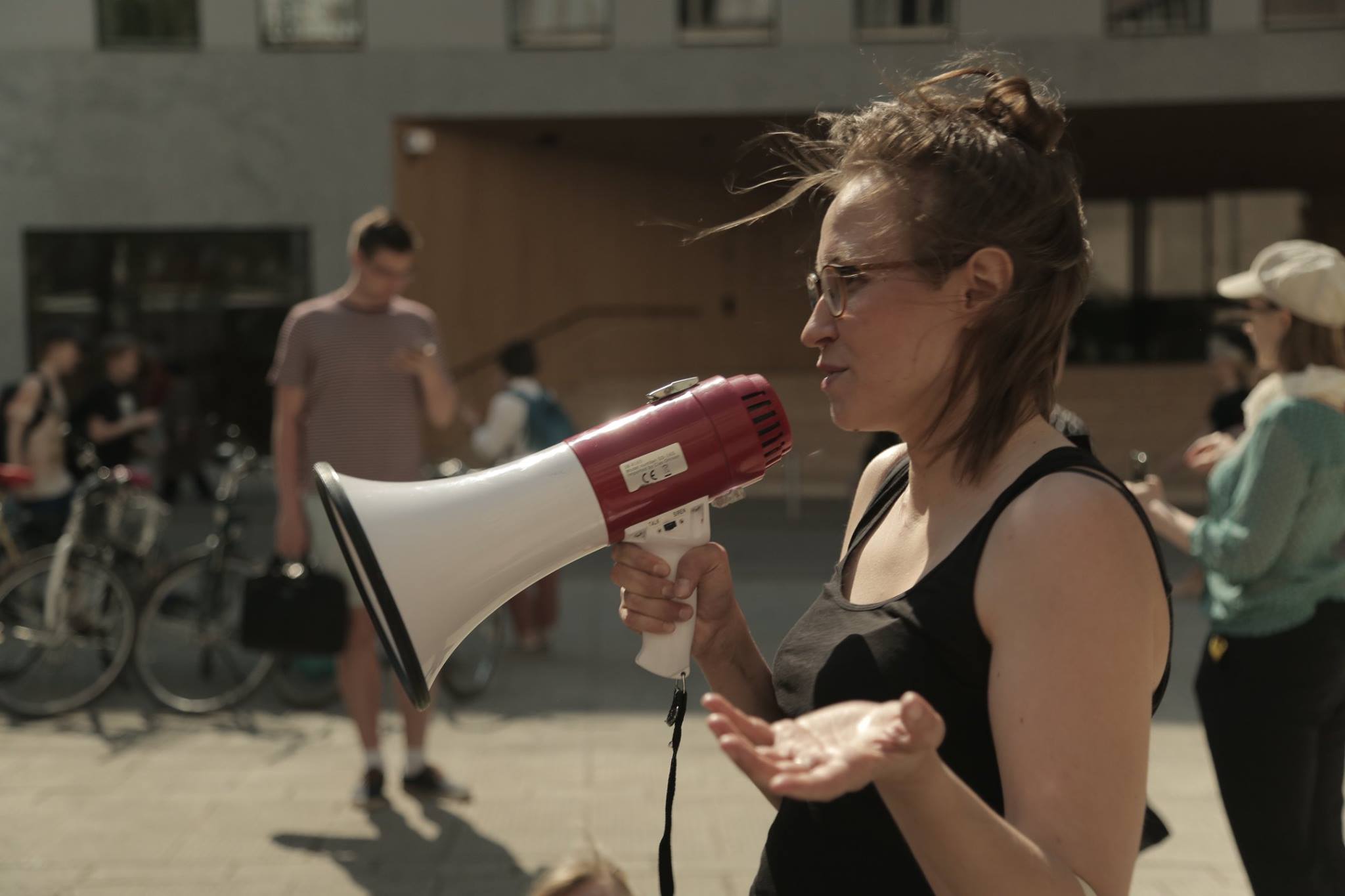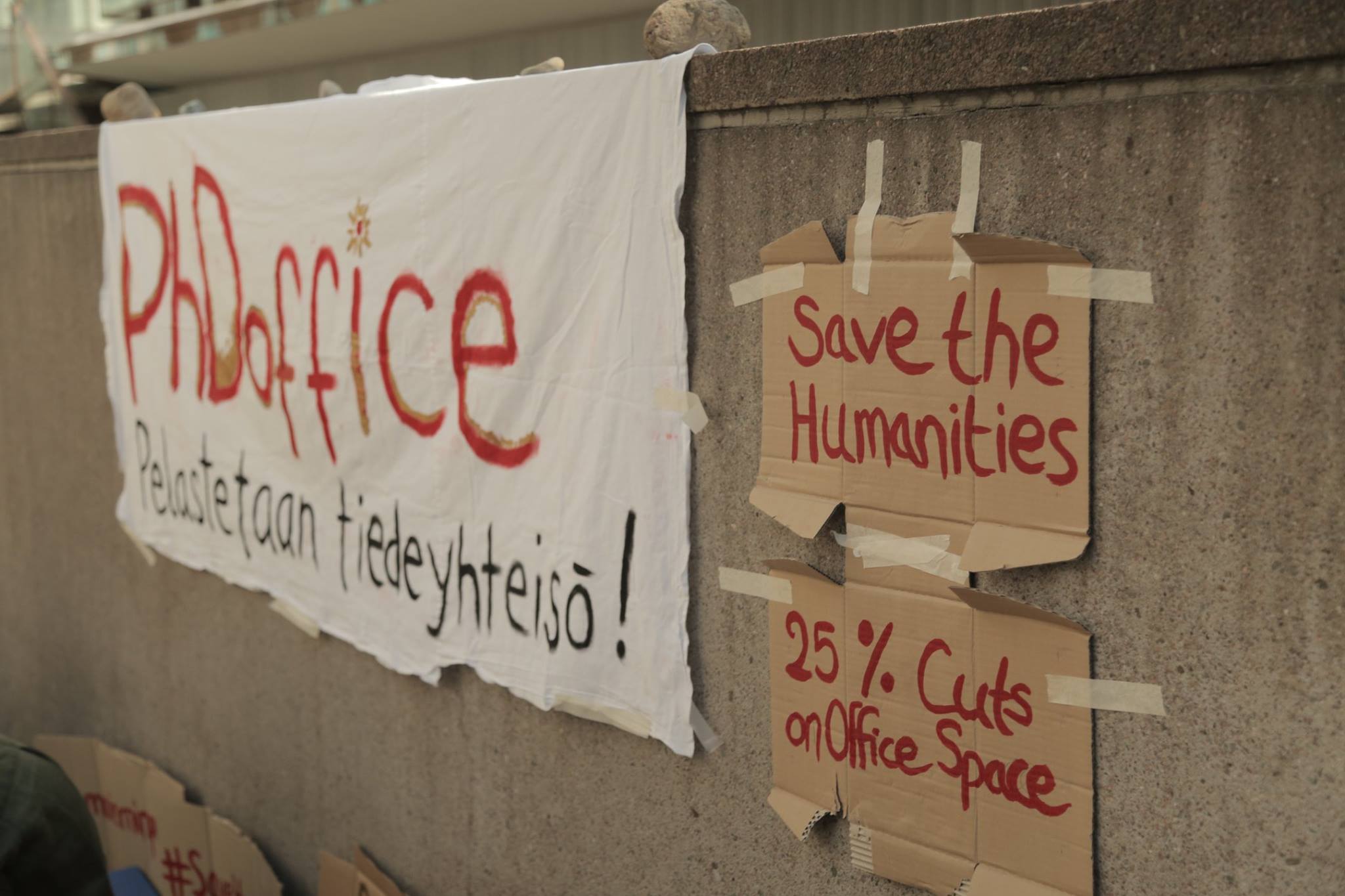May 16, 2018 something called PhDoffice or Porthania Home Demonstration office took place on Porthania yard from 10-12.30. The event was arranged by a group of PhD students, as a protest against the severe cuts in office spaces: the Faculty of Arts has decided to cut 25 % of its square meters. This desicion has to do with the whole university being under pressure to cut down on its square meters, and similar cuts have already been made in other faculties.

The event was a plea for the preservation of humanities research communities, and a reminder that the research community consists of professors, as well as other staff, such as doctoral researchers.
The cuts would affect the whole research community as more people would be concentrated into smaller offices, but they would hit the young researchers the hardest. The majority of doctoral students is working on grants, and most of them will likely now be excluded from the office spaces and thus from the research community. It also deserves to be said that it has already been very difficult (and for many outright impossible) to get an office space as a grantee on the city centre campus. Only the small employed minority of doctoral students can count on having office spaces in the future. The situation is further complicated by the fact that those who are unfunded (in-between grants or in the process of applying for a grant) are already excluded from the research community, because it usually is impossible to get an office space without funding. Now the group of excluded young researchers is about to grow significantly.

Separating the great majority of humanities doctoral students from their disciplinary communities would also put them in an unequal position compared to doctoral students on other campuses. How will humanities doctoral students be properly educated as researchers if their working conditions are considerably worse than those of their colleagues? How will they be integrated into the research community? How will they learn from their colleagues if they are separated from them?
During the event these questions were discussed with Hanna Snellman, (dean of the Faculty of Arts), Minna Palander-Collin (director of the Doctoral School in Humanities and Social Sciences), and Kirsi Korpiaho (coordinator of the Doctoral School in Humanities and Social Sciences). Unfortunately, neither the faculty nor the doctoral school could promise any changes to planned cuts. However, the difficult situation was recognised, and both faculty and school were ready to support other ways to improve the integration of doctoral students into the researchcommunity. Also the campus pastor Leena Huovinen came by to give her views on the (lack of) community at the university, and what could be done to improve things.
Now practical solutions are needed: how can the workspace situation and the integration of doctoral students into the research community be improved? Suggestions were collected during the event and they will be presented as soon as the organisers have had time to compile them – more info is coming!

Ultimately these cuts, like other recent cuts at the university, are caused by the Finnish government’s cuts in university funding. Did they realize that this would be one of the outcomes; that early career researchers would be even more excluded from the university community than they already are? If nothing is done to fix this problem, one question is, who benefits from the exclusion of researchers – and why. As early career researchers, our main concern now is what we can do to turn these developments in a better direction.
